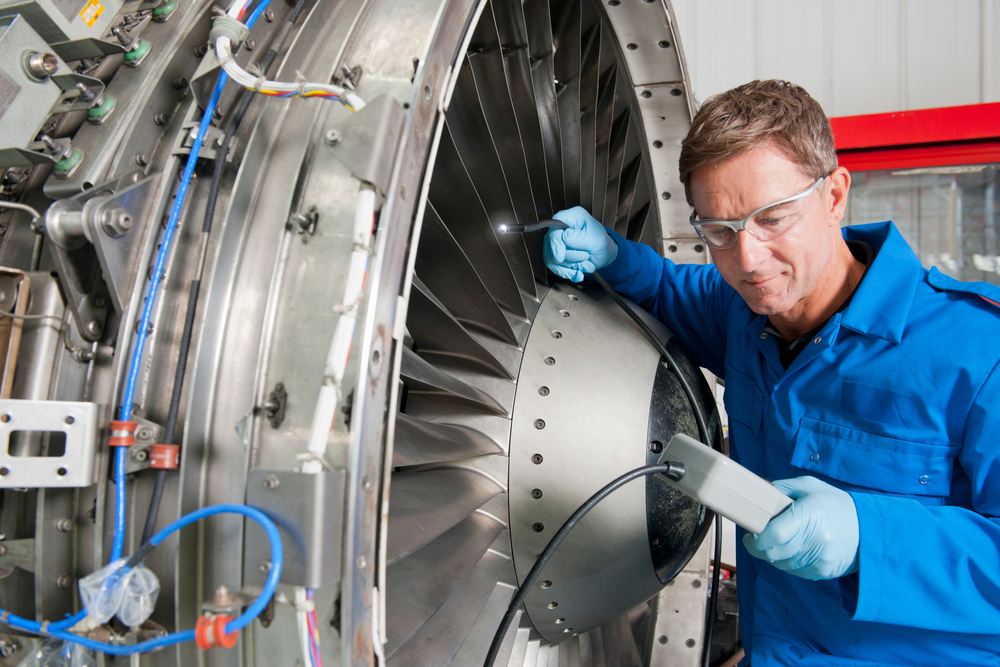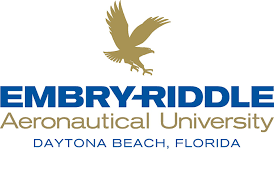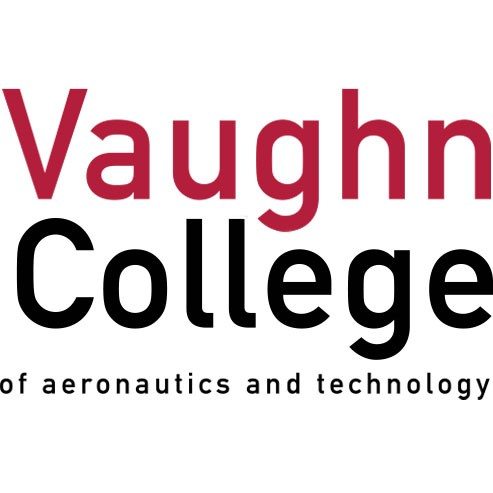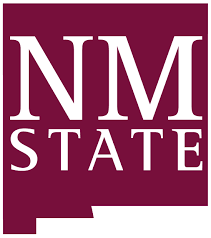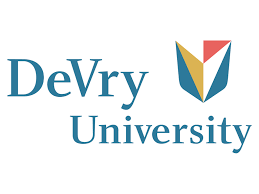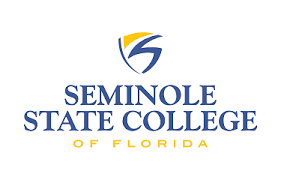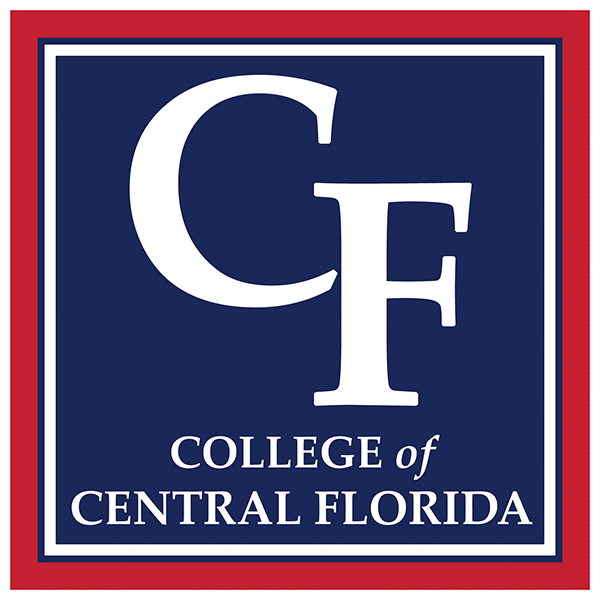Find Your Perfect School
Have you ever dreamt of becoming an Aerospace Engineer and Operations Technologist? Sounds exciting, right? A career in aircraft or spacecraft may not be for everyone, but if you are interested in flight, this is a career you may want to consider.
And… don’t think you must earn a master’s or doctorate first. If you want in at the ground level, you can begin your career with an associate degree or vocational training, particularly if manufacturing opportunities are available in your area.
So, don’t “fly by the seat of your pants!” Take a look at the below guide to see if you are interested in a real career based on science, excitement, and flight! If so, get started today on a promising new career!
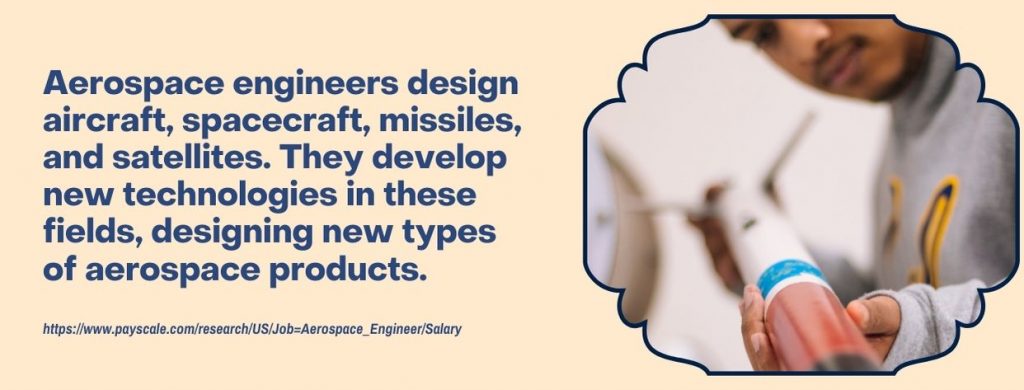
10 BEST SCHOOLS FOR AN AEROSPACE ENGINEER AND OPERATIONS TECHNOLOGIST DEGREE
Embry-Riddle Aeronautical University
(On-campus and Online) Associate in Science in Aeronautics
This is a 60-credit program designed for individuals with a keen interest in starting an aeronautics career on the right foot. Students can choose between the on-campus and online programs and choose from one of the international campuses. Such ease of access means that ERAU’s AS in Aeronautics program enjoys widespread popularity.
The curriculum consists of several courses that introduce students to the basics of aeronautics and aviation. These include Introduction to Aeronautical Science, Aviation Legislation, and Statistics with Aviation Applications.
Other courses are occupational safety and health, aircraft maintenance, and human factors. These multidisciplinary courses are designed to match the current needs and trends of the aerospace/aviation industry while also providing quality general education.
Students leave the program with a broad knowledge of aerospace and aviation that makes them employable in the industry. While there are mandatory core and general education courses, students also take electives. These courses tailor the degree based on their unique interests and goals while expanding their career horizons.
More than a quarter of the 60 credits can be transferred from prior life experience and other accepted college credits. If you wish, you can earn a bachelor’s degree in three years, too.
Programs Offered:
- Aviation Business Administration
- Engineering Fundamentals
Check out the AS in Aeronautics program at ERAU, among the best aviation schools in the United States, and get a head start on your career!
Eastern Florida State College
(On-campus) Associate in Science in Aerospace Technology
EFSC offers its AS in Aerospace Technology program for individuals who want a fast track toward a career as an aerospace engineer and operations technologist. But this isn’t an easy-peasy program – students have to comply with the rigorous academic requirements and earn 64 credits. The program of study requires two years of full-time enrolment to earn the degree.
Students learn technical skills through a combination of classroom lectures and laboratory work. Such an effective applied-to-learn approach results in students being well-prepared for the certification examinations in aerospace technology. Many also proceed to bachelor’s degree programs in aerospace and other related fields.
Courses are offered during the day with the students as a cohort or in the evening. Students learn a wide range of aerospace and aviation skills, including:
- The operation and repair of systems associated with payloads, launch vehicles, and ground equipment and
- The operation and maintenance of fluids power, electrical and mechanical systems
Students learn basic soldering skills, testing of hydraulic/pneumatic systems, and reading blueprints, among other technical trade skills. These skills allow them to be productive and effective as entry-level aerospace engineering and operations technologists.
EFSC also offers two certificate programs related to said jobs. The 17-credit Structural Assembly Technician College Credit Certificate (CCC) and 43-credit Aerospace Technician CCC are shorter. But these are also accepted among employers because of the intensive training.
Programs Offered:
- Accounting Technology
- Graphic Design Technology
Getting into the aerospace industry is easier and faster when you have the AS in Aerospace Technology degree from EFSC! Be sure to click on the link and get started.
Calhoun Community College
(On-campus) Associate of Applied Science in Aerospace Technology
Calhoun’s AAS in Aerospace Technology has two concentrations students can choose from – Welding or Structures and Assembly. Regardless of concentration, students acquire useful skills sought after by employers in the aerospace and aviation industries. The more common entry-level jobs in which the degree is applied are aerospace engineering and operations technologists.
The program of study combines classroom instruction and hands-on laboratory sessions in several subjects, from assembly welding to propulsion structures. Both concentrations emphasize technical skills for the workplace while encouraging students to acquire transferable skills.
The Welding concentration ensures that students acquire basic gas and arc welding skills and plasma arc, orbital tube welding, and brazing skills. Students become prepared for certification exams as welding operators in the aerospace and aviation industries.
The Structures and Assembly concentration focuses on the electrical and mechanical assembly skills students will need in aerospace manufacturing. Their skills enable them to work on the hardware related to helicopters, airplanes, rockets, and missiles, from composites manufacturing to testing methods.
Programs Offered:
- Industrial Maintenance
- Process Technology
If you’re looking for high-quality education that will open opportunities in the aerospace industry, you must check out Calhoun’s AAS in Aerospace Technology program! The technical skills learned here will be valuable when applying for aerospace engineering and operations technologist jobs.
Vaughn College of Aeronautics and Technology
(On-campus) Associate of Applied Science in Aeronautical Engineering Technology
The 64-credit program goes beyond the usual expectations in its AAS in Aeronautical Engineering Technology program. Students acquire a strong foundation in computer use, particularly in science, math, and graphic arts. Faculty members ensure that students become engaged in solving technical projects and problems resulting.
The result: Students build not only strong technical skills but also transferable skills, including critical thinking, problem-solving, and communication skills. Graduates report being successful in their fields, such as aerospace engineering and operations, even contributing to developing industry trends.
These impressive results are the product of a program of study designed to keep up with the times. The courses are flexible, meaning faculty members can change their content depending on current developments. Students learn quick thinking, too, in courses that include Computational Methods in Engineering, Dynamic and Static Engineering, and Fluid Mechanics. The Computer-Aided Three-dimensional Interactive Application (CATIA) course is among the most challenging but rewarding because of its useful applications in the workplace.
Students enjoy these courses in modern classrooms and MATLAB and demonstrate their skill sets through a capstone project.
Programs Offered:
- Animation and Digital Technologies
- Electronic Engineering Technology: Avionics
Vaughn is among the best schools specializing in aeronautical engineering. Thus, it makes sense that their AAS in Aeronautical Engineering Technology program is the best for demanding individuals. Check it out now!
New Mexico State University
(On-campus) Associate of Applied Science in Aerospace Technology
Graduates of NMSU’s AAS in Aerospace Technology program possess the skills necessary to assemble, operate, and repair aerospace systems and vehicles. Their wide range of aerospace technology-related skills produces intensive instruction in space flight and commercial space flight requirements.
Graduates are also eligible to sit for the SpaceTEC certification exam, a gateway toward Spaceport America job opportunities. Many graduates also secure jobs in New Mexico’s emerging aerospace and aviation industries. Due to the broad range of skills acquired, many are also qualified to take on manufacturing and electronics jobs.
Students may enroll on a part-time or full-time basis. Part-time students take their classes either during the day or during the evening. The time to degree varies, but full-time students can earn the degree in two years.
Earning the degree requires securing a Career Readiness Certificate in Locating Information, Reading for Information, and Applied Math. This can be achieved by completing the requirements in the 1-credit OETS 102 Career Readiness Certification Preparation.
Programs Offered:
- Dental Hygiene
- Emergency Medical Services
NMSU’s AAS in Aerospace Technology degree is a powerful tool when you’re applying for entry-level jobs as an aerospace engineering and operations technologist. The two-year program will open opportunities that will last a lifetime, too.
Montgomery College
(On-campus) Associate of Science in Engineering Science with a Concentration in Aerospace Engineering
Do you have lofty ambitions of becoming an aerospace engineer, but your current circumstances aren’t conducive to a bachelor’s degree? Then, you may find Montgomery’s AS in Engineering Science with an Aerospace Engineering concentration the best choice! The two-year program has a curriculum that can be transferred into a Bachelor of Science in Aerospace Engineering degree at the University of Maryland College Park.
But the associate degree can stand on its own, so to speak, when applying for well-paying entry-level jobs in the aerospace and aviation industries. Most of its graduates use the degree as their ticket to aerospace engineering and operations technologist jobs because it’s the best fit.
The learning outcomes reflect the high standards of quality that Montgomery adopts for all its degree programs. Students learn to identify basic engineering issues and their solutions, particularly thermodynamics and mechanics. Their skills include designing simple structures and mechanisms through numerical and analytical methods specific to aerospace engineering. Students also become proficient in applying software and programming languages used in the field.
Full-time students can earn the degree in four semesters or two years. The curriculum is sequential, and the courses combine technical and general education topics. These include English, math like calculus, general chemistry for engineers, mechanics of materials, and thermodynamics.
Programs Offered:
- Building Trades Technology
- Environmental Horticulture and Sustainable Agribusiness
Check out Montgomery’s highly recommended AS in Engineering Science with a Concentration in Aerospace Engineering program now! This may well be your ticket to success.
Penn Foster Career School
(Online) Associate in Engineering Technology
Penn Foster’s reputation as among the best in online career education is strengthened by its exceptional Associate in Engineering Technology program. Students earn the degree in four semesters, or about 16-24 months depending on their enrollment status and pace. This is a 64-credit program with a curriculum that emphasizes engineering technology across several disciplines and 31 exams.
The self-paced online courses enable students to gain workplace-ready skills for a strong start in their engineering careers. These courses span the range of basic principles and practices in industrial, electrical, and mechanical engineering, translating into a career as an aerospace engineering technologist. Many graduates also use their skills for 3D printing, automation, and alternative energies.
The courses include Drafting with AutoCAD, Engineering Mechanics, Computer Applications, Quality Control Systems, AutoCAD Applications, and Precision Machining Operations. These may be self-paced courses, but students enjoy the benefits of live support, goal tracking, and supportive instructors. There are also student support services like academic guidance, career support, counseling, and a vibrant student community.
In the program, students learn to read and interpret blueprints and other technical drawings, use CAD in engineering projects and problems, and interpret hydraulic and pneumatic systems.
Programs Offered:
- Floral Design
- Paralegal Studies
There’s no other school like Penn Foster for online training in career professions and skilled trades! Check out its Associate in Engineering Technology program and be part of its tradition of excellence.
DeVry University
(On-campus and Online) Associate in Engineering Technology
Students earn DeVry’s Associate in Engineering Technology degree in four semesters of full-time studies, as well as the option between on-campus and online classes. A series of engineering technology courses combine classroom instruction for foundational knowledge and laboratory sessions for practical skills.
Students learn a wide range of skills that make them adaptable to the fast-changing aerospace and aviation industry. These skills range from proficiency in basic data management and programming languages to security protocols and interconnected systems. These are fundamental skills that can be used in several jobs, including aerospace engineering and operations.
The program also allows students to earn the IT Essentials Certificate which opens more doors of opportunities for well-paying entry-level jobs. Students can also choose from several specializations in the engineering technology program:
- Machine Learning and Design Techniques, which covers machine learning, robotics, and artificial intelligence
- Medical Technology and Healthcare Systems where students learn about the proper use and maintenance of medical equipment and machinery
- Renewable Energy and Sustainable Power, which covers alternative energy technologies and their design, testing, and operation
- General Option, a concentration that covers several specializations by allowing students to create a customized program of study
Students receive a complimentary laptop, enjoy certification exam reimbursement of up to $300, and have a higher chance of passing the industry certification exams.
Programs Offered:
- Health Information Technology
- Accounting
Online engineering technology education is the best at DeVry! Earn your Associate in Engineering Technology degree here and get a head start on your aerospace engineering and operations career.
Seminole State College of Florida
(On-campus, Hybrid, and Online) Associate in Science in Engineering Technology
The best thing about SSCF’s AS in Engineering Technology program is that it offers traditional and non-traditional students several on-campus, online, and hybrid options. Students can use the associate degree for job-hunting immediately after graduation or as the two-year foundation for a bachelor’s degree in the future.
Students must complete 44 credits to earn the degree, and these can be completed in four semesters based on full-time enrolment. The courses should be completed in sequential order, but students may also choose the self-paced option. No matter the option, students must complete the academic requirements for required subjects like:
- Principles of Computer Programming
- Fundamentals of DC Circuits
- Fundamentals of AC/DC Electricity
- Computer-Aided Design
The 60-credit program also includes general education courses along with technical courses. Students then get a well-rounded education with a good balance between technical and transferable skills.
Thanks to the state college tuition, affordable tuition is a benefit that students enjoy in this program. Other benefits are small class sizes, usually 30 or less, and a job placement rate of 90% after graduation. Students may also use the associate degree to transfer credits to a bachelor’s degree at SSCF or the University of Central Florida.
Programs Offered:
- Business and Information Management
- Project Management
Getting quality education without getting into debt is possible with SSCF’s AS in Engineering Technology program! Click on the link and get started on your career.
College of Central Florida
(On-campus) Associate in Science in Engineering Technology
Studying under CF’s AS in Engineering Technology program is excellent preparation for a wide variety of well-paying jobs in the aerospace and aviation industries. Aside from aerospace engineering and operations jobs, graduates also work in manufacturing and maintenance. The degree is also a stepping stone toward a bachelor’s degree in engineering technology and other related fields.
There are three specializations offered, all of which are under the Business and Technology area of study:
- Quality Specialization where students can apply their skills in business settings, particularly in the manufacturing and services sectors.
- Electronics Specialization where students gain specialized skills in the design, operations, and maintenance of electronics in various settings, including aerospace
- Advanced Manufacturing Specialization where students learn skills in installing, supporting, and applying automated systems in manufacturing settings.
Graduates will demonstrate their proficient understanding of materials properties and industrial processes; make, interpret, and discuss computer-aided drawings including blueprints; and use quality control concepts and quality assurance methods. Students also learn transferable skills that increase their employability, such as communication, problem-solving, and teamwork skills.
Programs Offered:
- Lean Six Sigma Green Belt
- Automation
CF’s AS in Engineering Technology is an excellent first step toward an aerospace engineering and operations technologist career!
FREQUENTLY ASKED QUESTIONS
What does an Aerospace Engineer and Operations Technologist do?
Aerospace Engineers and Operations Technologists are responsible for installing and maintaining a variety of equipment used to oversee the development and testing of aircraft and spacecraft. Precision safety is critical to all types of systems in this field.
Primary duties will include the following:
- Work closely with Aerospace Engineers
- Build, test, and maintain aircraft and spacecraft systems
- Install aircraft and spacecraft instruments
- Record test results data
- Calibrate computer systems
- Solve malfunctions as needed
- Oversee flight simulations
- And, much more!
How do I become an Aerospace Engineer or Operations Technologist?
To become an Aerospace Engineer or Operation Technologist, you will generally need an associate degree in engineering technology or a degree in a related field. With that said some potential employers may only require that you have a high school diploma and have completed a certification program.
In addition, U.S. citizenship may be required in case you need security clearances to work on national defense projects.
Often, community colleges offer associate degrees or vocational training in this field.
Where do Aerospace Engineers work?
Aerospace Engineers and Operations Technologist’s jobs can be located in various facilities, with the most popular being in aerospace product and parts manufacturing, in which you would be tasked with assembling parts.
In addition, jobs can be found in engineering services, scientific research and development services, as well as computer and electronic product manufacturing.
How much do Aerospace Engineers and Operations Technologists get paid?
According to the BLS, the average salary for an Aerospace Engineer and Operations Technologist was approximately $74,410 per year, with the highest 10% earning upwards of $109,610 annually.
Is there a demand for positions in the field of Aerospace Engineering and Operations Technologists?
This field is projected to grow by 8% between 2022 and 2032, particularly in the professional, technical services, and scientific industries.
What will I learn in an Aerospace Engineering associate degree program?
Earning an Associate of Arts in Aerospace Engineering is just the beginning of your journey, for a bachelor’s degree is ideal if you wish to excel in the field. As you begin the process of earning an associate degree, you can expect coursework to include the following:
- Physics
- Geometry
- Chemistry
- Calculus
- Differential equations
- Structural Mechanics
- Flight dynamics, testing, and analysis
- Computer-aided engineering
If you would like to take your career to the next level, you may also choose to earn your master’s and doctoral degrees in Aerospace Engineering.
What qualities will make me a good Aerospace Engineer or Operations Technologist?
Are you the curious type? Do you have an imagination? Do you enjoy working with your hands? If you answered yes, you would be very successful in this field, for scientific-related areas often require an inquisitive mindset.
Also, other helpful skills include excellent math and problem-solving skills, good analytical and critical-thinking skills, in addition to exceptional communication, writing, and business skills.
What are the pros and cons of becoming an Aerospace Engineer or Operations Technologist?
Pros:
- High salary potential: Aerospace engineers and operations technologists are highly sought after and typically have the potential to earn a high salary.
- Challenging and rewarding work: Aerospace engineering and operations technology are both challenging fields that require a great deal of problem-solving and creative thinking.
- Opportunity for advancement: Aerospace engineers and operations technologists can move up the ranks and eventually become managers, directors, or even executives.
- Access to cutting-edge technology: Aerospace engineers and operations technologists have the opportunity to work with the latest and greatest technology, which can be a great learning experience.
Cons :
- Long working hours: Aerospace engineers and operations technologists may have to work long hours, especially on projects that require tight deadlines.
- Stressful work environment: Aerospace engineering and operations technology are both stressful fields, as they involve a lot of problem-solving and critical thinking.
- Safety concerns: Aerospace engineers and operations technologists must be aware of potential safety risks when working with hazardous materials.
Related Articles:
